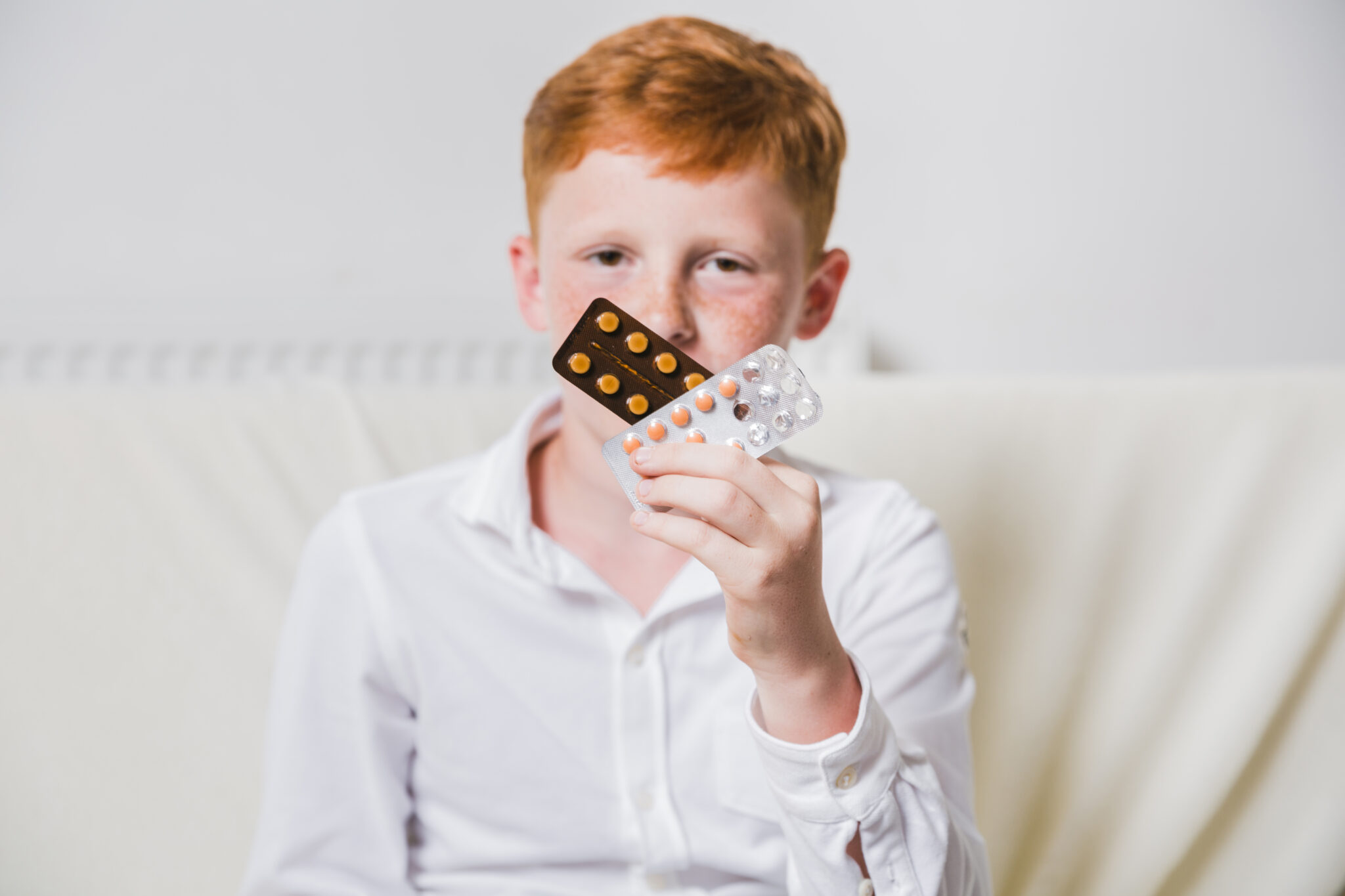President Donald Trump is talking up a little-known drug called leucovorin as a possible fix for autism. He says it could help kids with autism who struggle to speak or connect with others. This comes at a time when families search hard for ways to ease autism symptoms. Autism affects how people communicate and act. It touches one in 36 kids in the US, based on new health data. Leucovorin is an old medicine used for years to treat other health issues. Now, some doctors see hope in it for autism. But not everyone agrees. Experts say the early studies are small and need more proof. This push by the Trump team has parents excited but cautious. They want real answers, not just hype. Let’s look closer at what leucovorin is, how it might work for autism, and why science calls for bigger tests.
Leucovorin, also known as folinic acid, is not new to medicine. Doctors have used it since the 1950s. It helps the body use folate, a key vitamin for brain growth and cell health. Folate fights anemia and supports cancer treatments. In autism talks, it targets a brain chemical called methionine. Some kids with autism have low levels of this, which might block clear thinking and speech. The idea is that leucovorin boosts folate to the brain, fixing that block. This could make kids more verbal and less fussy.
The Trump administration spotlighted leucovorin in a recent health push. Officials shared stories of kids who improved after taking it. One mom said her son spoke full sentences for the first time. These tales spread fast on social media. Parents in autism groups buzz about trying it. Trump’s team ties this to broader goals, like cutting red tape for new therapies. They see leucovorin as a quick win since it’s already approved for other uses. No big trials needed to start, they argue. This fits Trump’s style of fast action on health fixes.
But doctors urge calm. Dr. Audrey Brumback, a brain expert at the University of Texas at Austin, leads the Coalition of Autism Scientists. She says research on leucovorin for autism is just starting. “We’re sort of in our infancy,” she notes. Most studies have tiny groups—often under 50 kids. One key trial from 2018 tested it on 48 children. Half got leucovorin; half got a placebo. After 12 weeks, the drug group spoke more and showed less crankiness. Scores on autism tests went up by 20 percent. Sounds good, right? But experts want larger groups and longer times to confirm.
Another study in 2020 looked at 30 toddlers. It found better eye contact and fewer tantrums with leucovorin. Yet, these are open-label trials—kids and parents knew who got the real drug. This can skew results from hope alone. No big, blind studies exist yet. The coalition put out a statement: Leucovorin shows promise but needs more work. They warn against calling it a cure. Side effects are rare—mostly tummy upset or rash—but mixing with other meds could cause issues.
Why the split in views? Autism is complex. No one drug fixes all. It ranges from mild social awkwardness to big daily challenges. Speech delays hit many, but causes vary—from genes to early brain wiring. Leucovorin fits a subset: kids with folate issues in spinal fluid. Tests can check this, but not all doctors do. Cost matters too. A month’s supply runs $200 to $500, not always covered by insurance for autism. Families weigh hope against bills.
- What Is Leucovorin? An old folate booster used for anemia and chemo side effects since the 1950s.
- How It Might Help Autism: Raises brain folate to fix methionine blocks, aiding speech and behavior.
- Early Study Wins: Small trials show 20% better talk skills and less irritability in weeks.
- Expert Cautions: Tiny sample sizes and no long-term data mean more big studies needed.
- Trump’s Role: Admin hypes it for quick therapy access, but science says slow down.
This list sums up the basics, showing why it’s exciting yet unproven.
Parents share mixed stories online. One dad posted on Reddit: “My girl’s words doubled in months—worth the try.” Another mom vented: “No change after six weeks, and the cost hurts.” Forums like Autism Speaks light up with questions. Some beg doctors for scripts off-label. Others stick to proven aids like speech therapy or ABA training. The hype risks false hope, say pros. It could pull funds from sure bets.
Bigger picture: Autism research lags. The National Institutes of Health spends $200 million yearly, but that’s tiny vs. cancer’s billions. Trump’s push might spark funds, but experts fear politics over science. He once blamed vaccines for autism—debunked hard. Now, leucovorin feels different: rooted in real biology, not myths. Still, the coalition stresses ethics. Test it right, or harm trust.
What’s next? Trials grow. A phase 3 study starts next year with 300 kids. It will check speech gains over a year. If it shines, FDA might greenlight it for autism. Groups like Autism Speaks fund this. They partner with drug makers for fair tests. Parents can join via clinicaltrials.gov.
For families, choices loom. Talk to docs about folate tests first. If low, leucovorin might fit. Pair it with therapies for best odds. Watch for scams—fake “autism cures” flood markets. Real help builds slow.
Trump’s tout has upsides: more eyes on autism needs. It spotlights speech struggles that break hearts. But science leads. Brumback ends hopeful: “Even tiny studies hint at paths forward.” As research rolls, families wait. Leucovorin isn’t magic, but it could be a step. In autism’s tough world, steps count big.
This debate shows health policy’s tightrope. Hype helps awareness; rush hurts proof. For the one in 36, balanced info saves pain. Stay tuned—bigger studies might rewrite options soon.






















